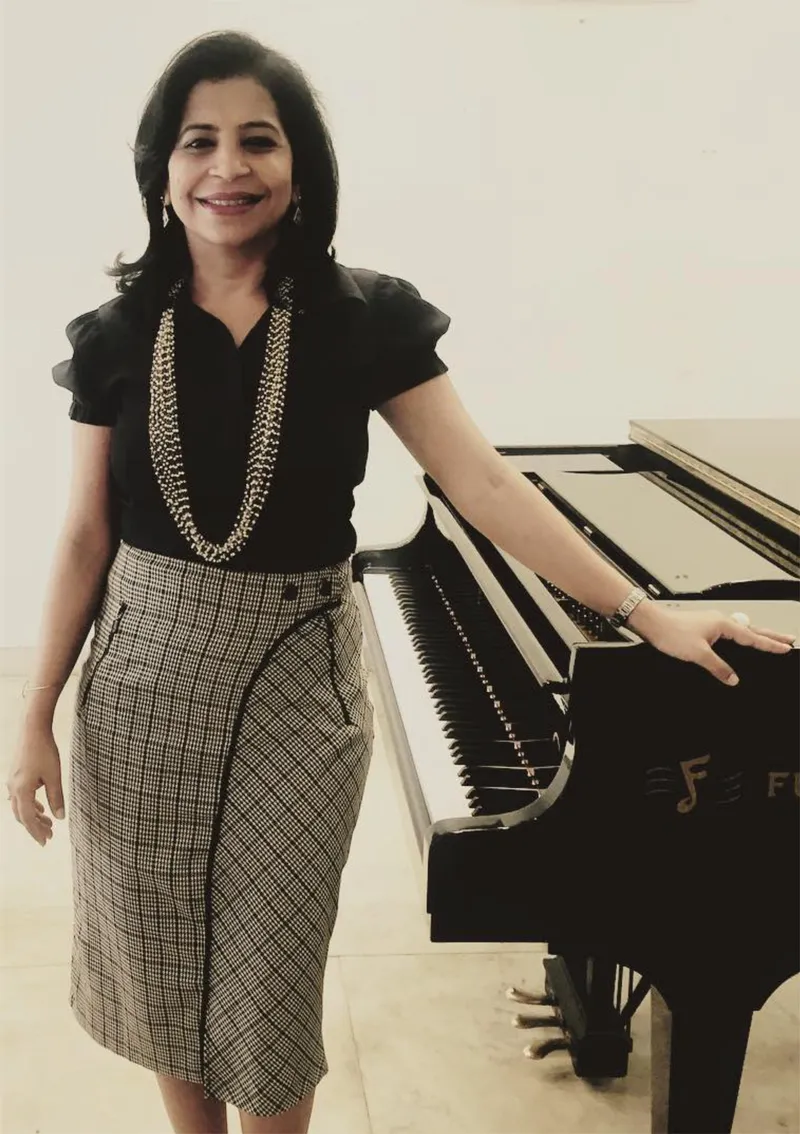These former-Barclays bankers are helping India fight pandemic blues with music
Founded in 2011, Mumbai-based Furtados School of Music pivoted during the pandemic to offer online music courses for students of all age groups.
When Tanuja Gomes and Dharini Upadhyaya were at the top of their careers at Barclays, the two often wondered if their work would allow them to leave a legacy or change anyone’s life. The conversations eventually revealed their common desire — to become entrepreneurs.
Tanuja’s family had been in the business of music for around 154 years, with its famous musical instruments store Furtados. When the duo observed how music was an integral part of learning in a child’s life, the thought of starting something in the music space struck them.
“There were hardly any music schools offering a structured curriculum in the country. We took a look at music programmes offered by top institutes in the world, and after hours of research and interactions with tutors, we decided to create a music education vertical in Furtados,” Dharini tells YS Weekender.

Dharini Upadhyaya, Co-founder of Furtados School of Music
The result was the Furtados School of Music, which started in 2011. In 2014, the founders established it as FSM Education Pvt Ltd.
FSM partnered with schools, helping them provide music education to the students, besides having 13 physical centres across the country for music education.
Today, the Furtados School of Music or FSM is home to more than 75,000 students across the country, with experts from across the world training the students — young and old — to be pioneers in art and music.
Digital transformation
In March 2020, when the Prime Minister announced a nationwide lockdown to curb the coronavirus pandemic, the founders and FSM realised that the business needed to be pivoted.
“While there were continued engagement with existing customers, with the pandemic escalating anxiety and other negative emotions, the value of music and music education was enhanced as people needed a creative outlet to vent themselves,” Tanuja says.

Tanuja Gomes, Co-founder of Furtados School of Music
FSM needed solutions to cater to the rising demand. “While nobody was sure of how long the lockdown or pandemic would last, we definitely knew that if we had to sustain, we needed to spin the business,” Dharini adds.
The FSM team realigned priorities to remain relevant. In April 2020, it partnered with 63 schools and started conducting online music classes. The team also explored the B2C channel and launched FSM Buddy, a platform for courses catering to right brain development. It is now a one-stop platform for all creative skills — music, language, dance, art and craft, speech, and drama.
“We have had the steepest learning curve in the past three months. We have been able to bring moments of joy, calmness, and other positive emotions that result from music education to over 10,000 students,” Tanuja says.

Source: Shutterstock
Pandemic-induced trends
According to Dharini, digital acceptance of music learning would have taken at least another three to five years. However, the pandemic accelerated the process and helped FSM achieve it within 10-months.
“Everyone who believed that it was not possible to do digital learning are now comfortable with this learning medium and have also realised its benefits, the merits of blended learning, individualised learning options, practising with online assistance, having a recap of lessons taught, and other perks of online learning,” she adds.
Prior to the pandemic, the user base of FSM was split between school students and its 13 centres across the country. At present, its focus is on the B2C space.
It has trained over 3,000 students online, and the B2C vertical has grown by at least 300 percent in the last eight-months.

Additionally, the pandemic has allowed students to do more with their time while leaving adults with dispensable time as well. FSM recorded huge growth in the 18 to 60-years age group, which had only seen single-digit growth in the past. The founders reveal that young learners between the ages of four and 14 continue to share a significant share.
Number game
FSM enables opportunities for learners across age groups through senior academicians in the team, artists and partners including Trinity College of London, and Berklee, among others. Additionally, it also enables hobby learners or users who chose to learn a favourite song, to take up a ‘hobby course’.
The school has been working with over 2,000 music teachers across the country, offering lessons based on FSM pedagogy and curriculum.
“We have added over 500 instructors offering programmes across all other art forms to create seamless access to qualitative teachers in each of the verticals,” Tanuja says.
FSM delivers close to 4,500 to 5,000 online sessions every week. “This number continues to grow every week with new admissions and renewals,” Dharini says.

Indian music space
According to Economic Impact of Recorded Music Industry in India, a 2019 report by Deloitte, the recorded music industry in India was worth Rs 1,068 crore.
Some of the renowned music schools in India include the True School of Music, KM Music Conservatory, the Shankar Mahadevan Academy, Delhi Music Academy, and Rabindra Bharati University, among others.
However, Tanuja feels FSM has a differentiator to offer. She says, “FSM has curated a learning programme for learners of each age group that ensures that there is a programme for each one of them and they can fulfil their bucket list, and their aspirations on this platform.”
Going ahead, FSM will continue to scale its B2C vertical by acquiring learners across the globe, “Inclined to find creative, fulfilling and goal-based learning of art programmes,” Tanuja says. “This growth is targeted to include global learners and will offer a proposition that is compelling and appealing to all geographies.”
It is also building tech solutions to further facilitate practise and assessment that will enhance the learning experience. “International markets are the clear focus to scale the FSM proposition, in addition to penetrating in Tier II and III locations from metros where the school has a wide presence,” Tanuja reveals.
Edited by Saheli Sen Gupta









